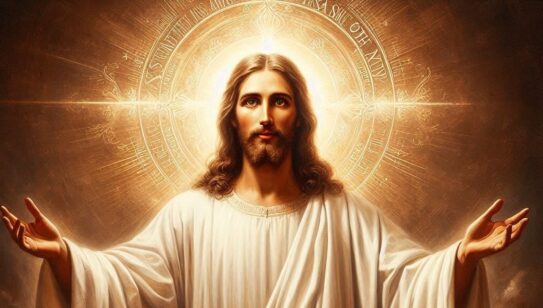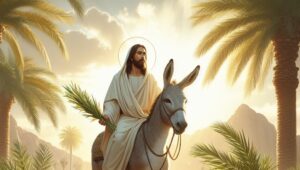The next Good Friday will be celebrated on April 3, 2026. In the year 2025 Good Friday was on April 18.
The Significance of Good Friday on the Holy Week
As we delve into the historical context of Good Friday, we acknowledge its roots in the early days of Christianity. The origins of Good Friday can be traced back to the crucifixion of Jesus of Nazaret in Jerusalem, the event that has forever changed the course of the world. This day is observed on the Friday before Easter Sunday, a time when we, as Christians, solemnly commemorate the Passion and death of Jesus Christ. While the term ‘good’ in Good Friday may seem paradoxical given the nature of the events we remember, it is a reflection of the ultimate good that came from Christ’s sacrifice, our salvation.
Good Friday is the second day of the Easter Triduum of Holy Week, the three-day period that culminates with Easter Sunday, the day on which the resurrection of Jesus is celebrated. The events of this day fulfill the Old Testament prophecies. It is a day of fasting and abstinence.
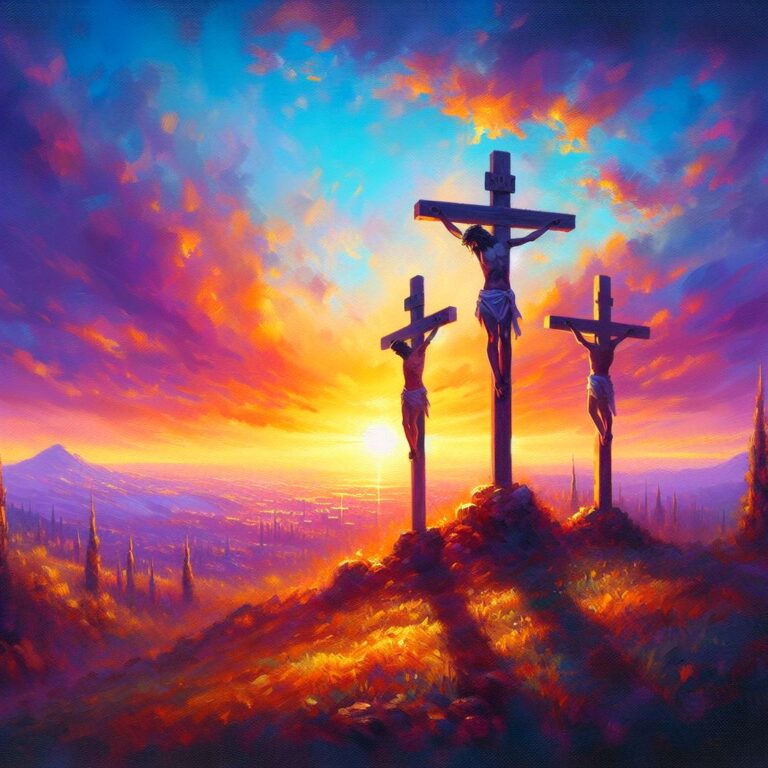
The accounts of Good Friday come from the New Testament in the Bible, detailing the events leading up to the arrest, trial, and crucifixion of Jesus.
According to tradition, after being betrayed by Judas Iscariot, Jesus was arrested in the Garden of Gethsemane and brought before the Sanhedrin, the Roman governor Pontius Pilate, and King Herod.
Despite finding no fault in him, Pilate yielded to public demand and sentenced Jesus to death by crucifixion. The crucifixion took place on a hill outside Jerusalem, known as Golgotha or “the place of the skull.”
There, Jesus was nailed to a cross, where he remained for several hours until his death. This is the ultimate sacrifice for the sins of humanity.
The Importance of the Crucifixion
The Crucifixion of Jesus Christ is a crucial event, since it is the moment in which the greatest act of love for humanity is consummated. Through His suffering and death, Jesus took upon Himself the punishment for our sins, offering us the path to eternal life. This selfless act embodies the core of our faith, where the sacrifice of the Son of God opens the door to reconciliation with the Father.
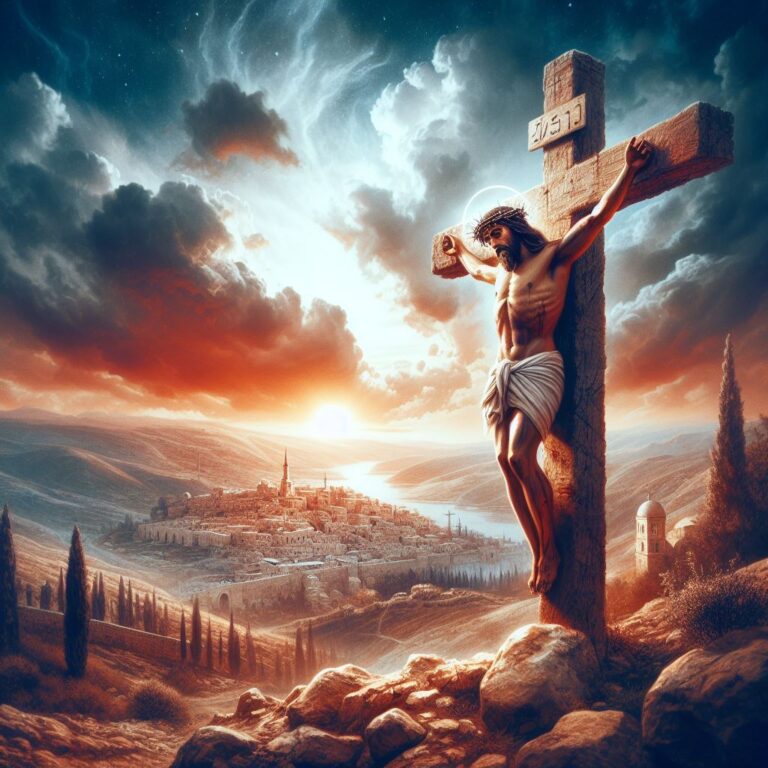
- The Crucifixion signifies the fulfillment of Old Testament prophecies.
- It represents the ultimate victory over sin and death.
- It is a testament to the depth of God’s love for humanity.
Good Friday Traditions
In our Roman Catholic tradition, we solemnly honor Good Friday as the day our Savior was crucified. We engage in several distinct practices to venerate this time:
- We observe the Stations of the Cross, a devotion that invites us to meditatively walk through the final hours of Jesus’ life.
- We participate in a liturgy that includes the reading of the Passion according to St. John and the adoration of the Cross.
- We abstain from the celebration of Mass, instead receiving Holy Communion from the reserve consecrated on Maundy Thursday.
- We celebrate reenactments of the Crucifixion and processions in the streets, carrying images that commemorate the passion of Jesus Christ.
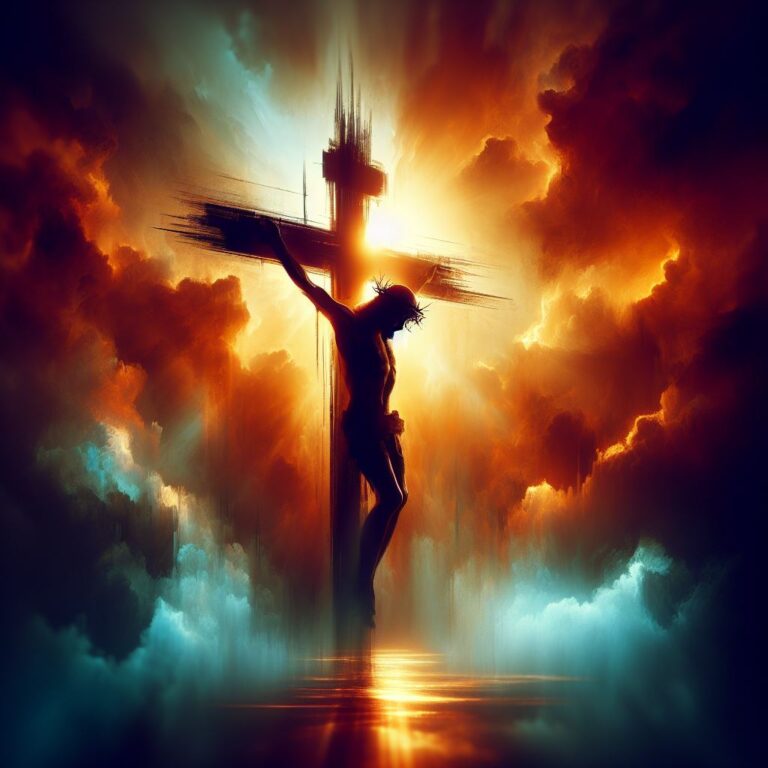
On Good Friday, our churches adopt an atmosphere of austerity. The altars are left bare, and the silence of the bells echoes the somber mood of the day. The entire Good Friday collection goes to support Christian communities and the holy places of Jerusalem.
Historical Usage of the Word ‘Good’
The term ‘Good Friday’ has been a part of our lexicon since the Middle Ages, first recorded in English around 1250-1300.
The word ‘good’ in this context is often understood to mean ‘holy’ or ‘sacred’, rather than the more contemporary sense of ‘positive’ or ‘excellent’.
This aligns with the solemn nature of the day, as it commemorates the crucifixion of Jesus Christ.
While the exact origin of the term remains somewhat unknown, it is clear that the day is anything but ‘good’ in the modern sense.
It is a day of mourning, reflection, and gratitude for the sacrifice made for our salvation.

Conclusion
Good Friday stands as a pivotal moment in Christian tradition, marking the commemoration of Jesus Christ’s crucifixion and death. Observed with solemn reflection, fasting, abstinence and prayer, Good Friday serves as a prelude to the joy of Easter Sunday, when we celebrate the resurrection and the promise of eternal life. It is a day that invites us to meditate on the love of Christ and the transformative power of his atonement, making it a cornerstone of the Holy Week.


